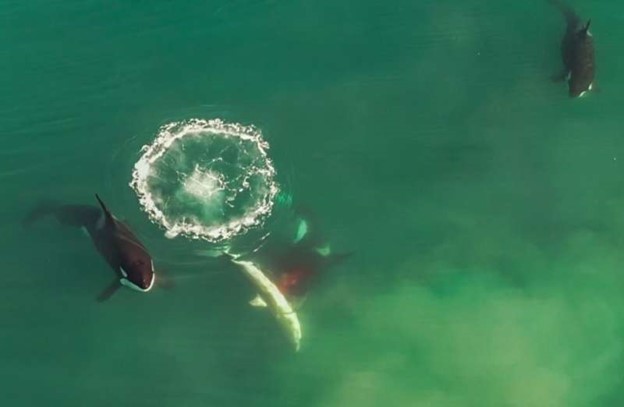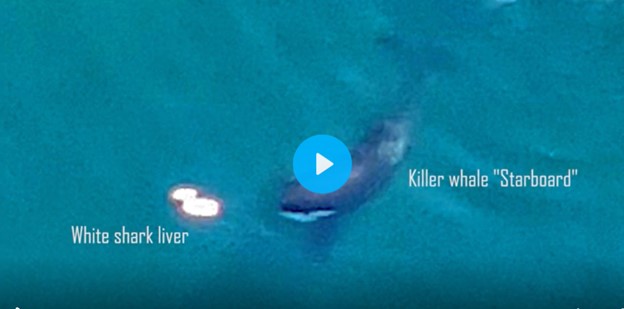Orcas Hunt and Kill White Sharks - Now We Have Proof

Scientists have published new findings confirming that orcas hunt great white sharks. The marine mammals were captured on camera killing one of the world's largest sea predators off the coast of South Africa recently.
A pod of killer whales is seen chasing sharks during an hour-long pursuit off Mossel Bay, a port town in the southern Western Cape province, in helicopter and drone footage that informed a scientific study released this week.
"This behavior has never been witnessed in detail before, and certainly never from the air," said lead author Alison Towner, a shark scientist at Marine Dynamics Academy in Gansbaai, South Africa.
One clip shows five orcas chasing and killing a great white and scientists believe three more were mauled to death during the hunt.
"Killer whales are highly intelligent and social animals. Their group hunting methods make them incredibly effective predators," Simon Elwen, a marine mammal specialist and study co-author said in a statement released Tuesday.

Orcas, the ocean's apex predator, have been known to prey on other shark species, but evidence of attacks on great whites was previously limited.
The study did not address the reasons behind the behavior, but they have been observed eating shark’s livers in other videos.
One of the whales was known to have attacked white sharks before, but the other four were not.
The authors said this suggested the practice was spreading, with earlier studies having established that the black and white animals can learn from one other through "cultural transmission".
Sharks disappeared from the area after the attack, with only one great white spotted in the next 45 days, according to the paper, which was published in scientific journal Ecology.
[SEE THE VIDEO HERE]